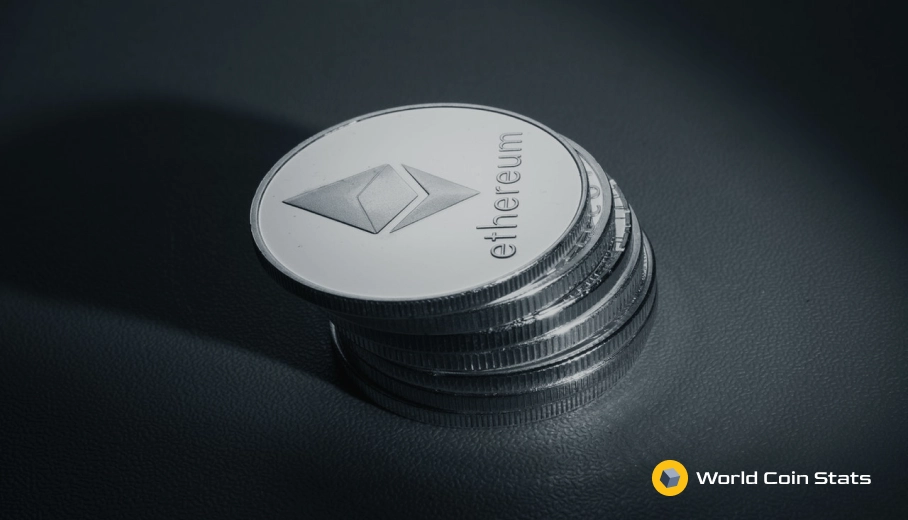Will Ethereum Flip Bitcoin?
A common sentiment in the cryptocurrency community is that Ethereum will flip Bitcoin. For those that don’t know, flip refers to Ethereum surpassing the market cap or price per coin of Bitcoin.
This sentiment was more common in 2017 when Ethereum was making waves due to the initial coin offering (ICO) bubble. However, that ended in late-2017 as increasing regulation in China and the United States brought an end to ICOs.
However, the sentiment has returned due to the emergence of decentralized finance (DeFi) and the critical role that Ethereum plays in that ecosystem.
That said, we find it extremely improbable that Ethereum will flip Bitcoin at any point. Ethereum simply has too many problems compared to Bitcoin and Bitcoin has better fundamentals. Additionally, Ethereum has some foundational problems that might make scaling difficult in the future.
This article will discuss all the reasons that it’s improbable that Ethereum will flip Bitcoin. But we will offer the one scenario in which Ethereum can flip Bitcoin.
Here’s 4 Reasons Ethereum Won’t Flip Bitcoin
There are a lot of reasons that Ethereum probably won’t flip Bitcoin. This section will focus on the three main reasons, though.
It’s important to note that many in the cryptocurrency community have pointed out these problems for years, but Ethereum has endured. These problems will increase in size as Ethereum grows in size, though.
We have already seen some of these problems begin to impact Ethereum, so it’s not unreasonable to think any one of these problems could be the downfall of Ethereum.
Ethereum Can’t Scale
The biggest problem with Ethereum, in our opinion, is that the project architecture is not scalable. Sure, it does work when the network does not have much traffic, but the network is growing in traffic with the increasing popularity of DeFi.
This has resulted in higher gas (transaction) fees and slower transactions.
The problem is a fairly simple one, too. In simple terms, everything is placed on a main blockchain, which greatly increases the amount of data that must be moved by miners for a transaction to go through.
There is no separate blockchain for separate projects – it all goes on the same blockchain. This was not a problem in the beginning. But Ethereum has so many different apps on it and an entire decentralized financial system on it these days.
This scaling problem has caused some problems with DeFi. For instance, sometimes a user cannot make an otherwise profitable transaction because the gas fees are simply too high.
That will not work for a blockchain that has a goal of running DeFi. It also makes it terrible for any transactions.
Ethereum Has No Max Supply
Another problem with Ethereum is that there is no maximum supply of the Ether token. This is in direct contrast to Bitcoin that has a hard cap of 21 million bitcoin with a decreasing supply after every 210,000 blocks are mined.
The obvious problem with not having a maximum supply of a currency is that it will lead to inflation. In fact, this goes directly against one of the core principles of Bitcoin and cryptocurrency as a whole.
It’s actually a little surprising that Ethereum has made it this far with an inflationary token. We expect this to become a bigger problem as more and more Ether tokens are mined. It’s actually similar to the problem that fiat currency has with unlimited money printing.
Ethereum Has a Leadership Problem
The final problem with Ethereum is that it has a leadership problem. This problem is not as large as the leadership problem in other cryptocurrency projects, but it still exists.
It becomes most apparent when Ethereum can never meet any of the deadlines that they set. The most infamous example is Ethereum 2.0, which has been released, but it does not have any of the features that would solve the scaling problems.
Sharding, for one, has been released. But it has not been fully released and in its current form does not solve any of the scaling problems. It’s mostly window dressing.
This is endemic of a bigger leadership problem. And it has been an issue for Ethereum for years and does not appear as if it will be resolved any time in the near future.
If Ethereum wants to flip Bitcoin, then it must solve that problem.
Ethereum Does Not Have The Name Recognition
Finally, Ethereum does not have the name recognition that Bitcoin has with the general public. Everyone in the cryptocurrency knows about Ethereum. But the general public does not really know about Ethereum.
Most of the general public views Ethereum as a budget version of Bitcoin. This is the easiest problem to solve, but it does take time for people to adjust to Ethereum.
We do not view this as a huge problem because people will adjust to Ethereum as the leading token if it reaches that point. It just makes things a lot harder when most of the general public, that’s the part of the population that must know about a cryptocurrency for it to flip Bitcoin, does not even know about the cryptocurrency.
The One Scenario Where Ethereum Can Flip Bitcoin

We have taken a negative stance on Ethereum flipping Bitcoin. However, there is at least one scenario where Ethereum can flip Bitcoin.
Bitcoin’s black swan event.
If Bitcoin has some sort of black swan event, then Ethereum could easily jump ahead of Bitcoin. The biggest black swan event that could occur is either a mass hacking of Bitcoin wallets or a huge network slowdown.
We find both of those scenarios extremely unlikely. And a mass hacking of Bitcoin wallets would likely result in every cryptocurrency falling in price because Bitcoin is generally viewed as the most secure cryptocurrency.
A network slowdown would be interesting, though. The problem is that it just seems so improbable because mining rewards would increase so much that miners would quickly begin mining to earn massive profits, which would solve the network slowdown.
That said, both these scenarios are possible, so it’s worth mentioning as a possible scenario for Ethereum to flip Ethereum.
Will any cryptocurrency flip Ethereum?
We have mentioned some problems with Ethereum. These problems are big enough problems that many people complain about Ethereum.
This naturally begs the question, does Ethereum have a viable competitor?
Yes, Ethereum has a few competitors. The most viable competitor to Ethereum, in our opinion, is Polkadot. This cryptocurrency was founded by Dr. Gavin Wood, a co-founder of Ethereum.
Polkadot solves the scalability problem of Ethereum by using something called parachains. It’s similar to sharding in Ethereum, but it works out a little better because the blockchains are completely separate and able to interact with each other.
Now, Polkadot is in its infancy, but it currently has the 4th highest market cap of any cryptocurrency with a market cap of $13 billion. For reference, Ethereum has a market cap of $134 billion.
$13 billion is a very impressive market cap for Polkadot because it does not have many DeFi projects on it at the moment. We expect the market cap to rise significantly as more and more DeFi projects launch on Polkadot.
It’s definitely a cryptocurrency to keep an eye on as a potential “Ethereum killer.”
Summary
We hope we offered a comprehensive why Ethereum will probably not flip Bitcoin. In fact, Ethereum has too many problems that it seems more likely that a competitor such as Polkadot will flip Ethereum before Ethereum can flip Bitcoin.
In short, Bitcoin simply has too large of a lead on Ethereum for a flip to occur barring any type of black swan event. Not to mention that Ethereum already has scaling problems with only a fraction of the transactions that Bitcoin has in a day.




